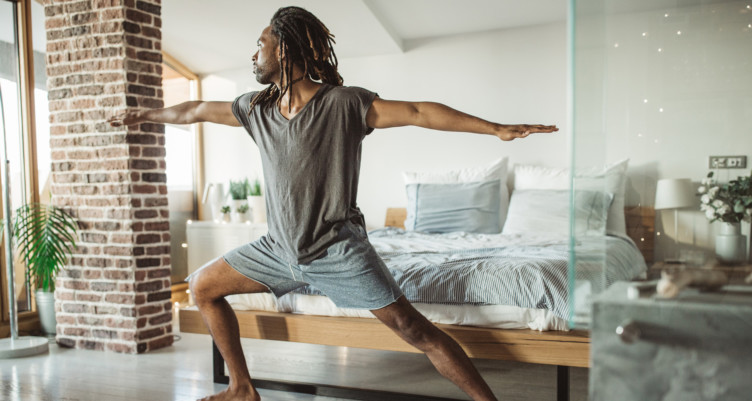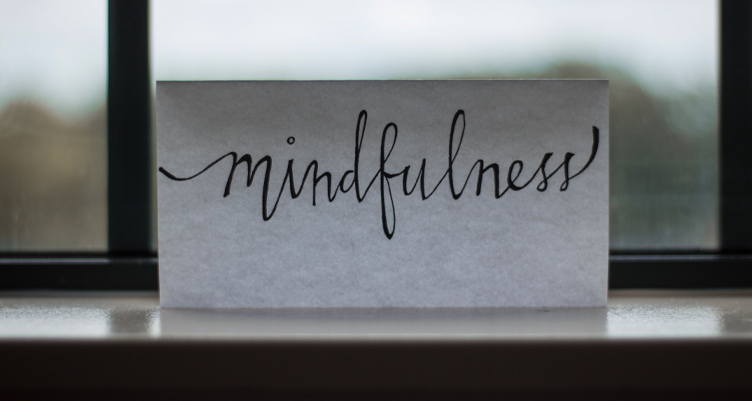Why Self-Care Should Be Part of Your Wellness Routine

- Self-care isn’t what you buy or where you go. It refers to the actions you take to support your physical, mental and emotional health.
- Self-care is a key part of your wellness routine because it’s one way to manage stress. Left unchecked, stress can wreak havoc in more ways than one.
- Keep reading for 19 self-care ideas that you can start today.
Contrary to what you’ll see in your Instagram feed, self-care isn’t always about lavish trips to the spa or digging into a pint of ice cream. It’s about behaviors and actions that allow you to pause and free up mental space. You might not associate self-care with your diet, but it should be part of your health and wellness routine. Here’s why making time for yourself matters, plus self-care ideas that won’t break the bank.
How self-care supports wellness

“Wellness” is a broad term that means “the state of being in good health.” That includes your physical, mental and emotional health.
The thing is, wellness is a constant balancing act.
Sometimes, you’ll do a great job in sticking to your diet and exercise routine — but you aren’t taking any time for creative work. Suddenly, your motivation suffers. Or maybe you’re working on a lot of fun projects and burning the midnight oil — so your diet and exercise routine goes bye-bye.
It happens. It’s normal. It’s life. You want to keep tabs on yourself and make sure you’re physically, mentally and emotionally well. Self-care is a part of this picture because it’s how you take action to maintain your health. That’s true whether you need something physical (like taking a walk), mental (like meditating) or emotional (like talking to a friend).
What happens when you don’t make time for self-care? Your cup runneth over. It’s like stretching a piece of string as far as it’ll go. Eventually, it’ll break — and that’s when stress takes center stage.
The problem with stress

Managing stress is one of the most impactful health upgrades you can make, and that’s because stress affects your body in more ways than one. In the short-term, it can make you feel anxious, irritable or hangry. In the long-term, it can increase your risk of high blood pressure and heart disease.
That’s because stress literally causes chemical reactions in your body. Stress is a hormonal and neurological response. When you’re stressed, your body releases signals that trigger your fight-or-flight model: your blood pressure rises, your pulse quickens and your adrenal glands pump hormones like adrenaline and cortisol into your system.[1] All of these factors are designed to help your body protect itself from danger, which is great if you’re running from a bear, but not so great if you’re at work, home or school.
Your brain and body perceive any stressor as a threat, whether you’re stressed because of a big to-do list or lack of sleep. The stress response is the same. And if your stress response never comes down, it’s like flooring your car’s gas pedal — eventually, your engine overheats, you run out of gas and you don’t operate at peak performance.
Chronic stress puts you at risk of health problems like poor sleep, mood disorders and weight gain.[2] And those symptoms can exacerbate your stress even more. For instance, poor quality sleep disrupts your gut health and contributes to brain fog. Ugh.
That’s why self-care matters so much in terms of your overall wellness routine. It isn’t just a way to check out — it’s a way to give yourself space to manage your stress and allow your body to reset. When you take care of yourself, you’re taking care of your brain and body, which directly impacts how you feel.
The best part? It doesn’t take a lot to practice self-care, and there’s no one right way to do it. Here are a few ideas to get started, inspired by the routines of real Bulletproof team members. Find what makes you feel your best and brings you joy.
Ways to take care of yourself

1. Eat balanced meals
Eating a donut might make you feel good in the short-term. But eating a nourishing meal filled with whole foods and quality fats, protein and carbs gives your mind and body fuel to handle anything life throws your way. Not sure where to start? Find out how to eat more vegetables at every meal.
2. Walk in the sunshine
Get your steps in, your blood flowing and hit your daily recommended dose of sun exposure — it’s great for your vitamin D levels.
3. Write gratitudes
Gratitude is a form of self-care because it helps you focus on the positives, not linger on the negatives — and that shift has been shown to support your mental health.[3] In a 2011 study of students who were asked to keep gratitude journals, students showed a heightened sense of meaningfulness and engagement in the classroom.[4]
4. Connect with a friend
Emotional self-care means finding ways to connect with other people in your life. Even if you have a tight schedule, schedule time to talk to friends who make you feel supported — strong social relationships are associated with stronger mental and physical health.[5]
5. Do a digital detox
If you cringe every time you hear an alert from your phone, take it as a sign technology is stressing you out. Mental self-care includes stepping away from your phone and notifications, whether it’s just for an hour (thanks, Do Not Disturb mode) or an entire weekend.
6. Take your vitamins
Your body’s systems need vitamins and minerals to do their jobs, like strengthening your immunity and supporting healthy cells. You want to get these nutrients in your diet first, but supplements come in handy when you want to ensure you’re giving your body the nutrients it needs to thrive.
Related: Upgrade Your Energy, Optimize Your Supplements
7. Hop in the tub
Add a little epsom salt for an extra dose of magnesium sulfate, which helps relax sore muscles. Bonus points if you add essential oils like lavender or eucalyptus, which can also promote relaxation.
8. Move more often
Movement is a form of self-care you can do throughout the day. Your mind and body are connected, and the way you move affects the way you feel.[6] Walk your dog, stretch in the afternoon, take a water break every hour when you’re sitting all day — it all adds up.
9. Change your diet
Self-care includes the way you fuel your body. If you know that you have a sweet tooth, but feel lousy after eating a ton of sugar, it’s okay to experiment with different styles of eating that help you get ahead of sugar cravings, like intermittent fasting or keto.
10. Breathe
If your body’s stress response triggers everything you’d need to run away from a threat, your relaxation response signals safety. One way to get there is to build breathing exercises into your routine, whether it’s through yoga or meditative breathing. Check out these simple tips from the University of California, Berkeley.
11. Drink water
Staying hydrated isn’t the most attractive way to practice self-care, but it’s one of the most impactful — water helps your mind and body function, and it’s an easy way to make sure you’re moving throughout the day (because, y’know, you gotta pee).
12. Sleep better
Good-quality sleep is restorative, refreshing and essential, and taking steps to ensure you’re getting enough of it is a powerful way to prioritize your wellness. Learn how to start sleeping better.
13. Say no
If you’re feeling stressed because of a full plate, it’s okay to turn things down. That’s how you build and enforce boundaries to protect your mental health, personal time and physical wellness.
14. Streamline your routine
Alleviate stress on future you. Meal prep is one effective way to streamline your routine by taking the guesswork out of breakfast, lunch or dinner. Not ready to commit to meal planning? Try smaller moves, like setting your coffee maker ahead of time or setting out your clothes the night before a big day.
15. Tidy up
Clutter is correlated with higher cortisol levels, according to a 2010 study.[7] Think about it: piles of laundry on the floor is just a reminder that you need to put clothes away, and that’s just another reminder to add to your list of stressors. Yikes. Instead, take care of yourself and your space by cleaning up one room, one space, or even one surface in your home at a time.
16. Cook
Learn new skills, nourish your body and foster fun connections with others by sharing your meals, all in one go. Need inspo? Check out the delicious ideas on the Bulletproof recipes page.
17. Meditate
Meditation teaches you to be present and mindful, and it’s easy to do — even in the middle of a stressful day. Start with this guided yoga nidra meditation.
18. Exercise
Lift heavy weights. Do yoga. Run. Step away from your to-do list and do whatever form of physical activity you enjoy — your mind and body will thank you.
19. Find what works for you
Self-care looks different for everyone, and the actions you take today might be different than those you take tomorrow. What matters is that you’re taking care of yourself, advocating for your health and finding what makes you feel great. You’re being Bulletproof.
Want the ultimate guide to get more energy and feel like a new you? Get your free copy of the Bulletproof 30 Day Upgrade!
Sign up for early access to sales, product launches, the latest Bulletproof news and more!



